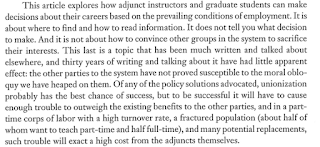Call for Papers: Special Issue on Human Rights Memory
Guest edited by Susana Kaiser, University of San Francisco, kaisers@usfca.edu
Popular Communication: The International Journal of Media and Culture
What is to be remembered, and what forgotten? Who takes ownership of memories or presents credentials to speak authoritatively about the past—e.g. the direct victims of human rights abuses, or society at large? We can link the emergence, growth, and proliferation of memory studies to post-violent environments and processes by which communities must come to terms with human rights violations and traumatic events. The aftermath of dictatorships, genocide, wars, massacres, forced migrations, the effects of environmental destruction, as well as the legacy of discrimination based on class, race, ethnicity, gender, and sexual orientation are problems of pressing concern to scholars working in critical traditions. The duty to remember human rights abuses and the need to re-focus on memory at the service of justice occupy central stage of this special issue.
Communication and media are interlinked with human rights matters and engaged with memory processes. This engagement is evinced in strategies geared toward keeping records of abuses, encouraging intervention to stop them, and using memories as tools to search for truth and justice. This special issue aims to contribute to the body of literature in what we label “human rights memory” and to narrow the gap in research about audiences/publics and media production processes. We are interested in research articles in an array of cultural productions, ranging from television series to artworks. We welcome submissions which highlight the processes by which people interact with, interpret, appropriate, consume, and use these productions, as well as those which elucidate how creative memory-writing—such as the activities of camera persons and museum guides—can work in practice. We seek to complement research centering on textual analysis, authorial intent, and expectations ab!
out the potential effect on audiences/ publics and will look for empirical support in studies that show the concrete impact of these initiatives while also illustrating their producers’ creativity and commitment to achieve specific goals.
The focus is global and multi-disciplinary. We are interested in innovative methodological approaches and theoretical frameworks that can contribute to the development of empirically grounded theory. We welcome submissions analyzing the richness of popular communication in matters of memory and human rights (civil, political, economic, social, and cultural). We invite contributions focusing on grassroots and mainstream popular communication, including traditional formats (theater, film, print, television, radio), new media (social, digital, screen media, video games, mobile phones), the arts (photography, exhibits, museums, memorials, public shrines, music, concerts, performances, fashion, graphic/comic books, cartoons), sports tournaments, and demonstrations. Topics may also include, but are not limited to:
- Theoretical and methodological approaches useful for researching human rights memory audiences/publics and production processes, and especially, approaches highlighting conflicts between dominant/ hegemonic memories and those of the groups contesting them.
- Audiences/publics’ decoding and use of productions promoting official memories and/or advancing counter-memory(ies).
- Communication strategies developed by activists that have been effective tools for educating, broadening the human rights memory public sphere, generating action, and opening dialogical spaces (local, global, diasporic).
- Tactics for accessing and impacting heterogeneous publics/audiences, and for securing resources for production, distribution, and exhibition (e.g., funding, technology, know-how).
- Production processes documenting and writing memories of ongoing human rights violations (e.g. digital witnessing of major current crises). Production teams’ participation in human rights memory processes, including the role played by artists, writers, actors, technicians—the “above” and “below-the-line” crews. Profiles of producers (e.g., filmmakers, musicians, bloggers, Wikipedians).
The deadline for submissions is December 15, 2016.
Papers should be no longer than 7,000 words (all inclusive)
Papers should be submitted using ScholarOne at http://www.tandfonline.com/toc/hppc20/current
Full instructions for authors, including APA 6th Edition style guidelines, can be found at the same page.
Correspondence and questions about this call for papers can be directed to Susana Kaiser (kaisers@usfca.edu)













